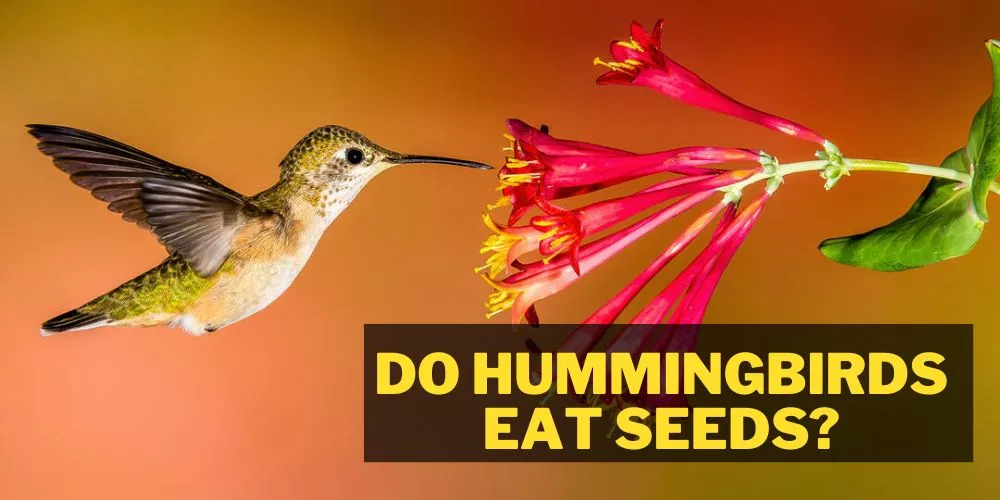Cat owners are all too familiar with their feline friends’ curiosity and penchant for nibbling on plants. One plant that often sparks debate is the vibrant Bougainvillea.
Very common in gardens and as decorative plants, their toxicity to cats is often questioned. This article aims to dispel the myths and present the facts about the possible effects of Bougainvillea on cats. Let’s find out is bougainvillea poisonous to cats?
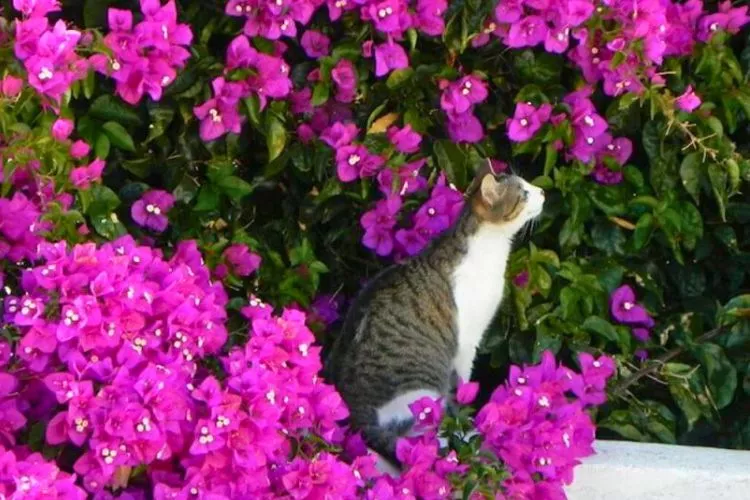
Is bougainvillea poisonous to cats?
Bougainvillea is a popular ornamental plant known for its colorful flowers. While bougainvillea is not generally considered toxic to cats, some parts of the plant can cause mild to moderate irritation if ingested. The sap and tiny hairs on bougainvillea leaves and stems can irritate a cat’s mouth and digestive tract.
Ingesting large amounts of bougainvillea leaves or stems may cause vomiting, diarrhea, and loss of appetite in cats. The bougainvillea flowers are unlikely to cause issues unless a cat ingests a large quantity.
To keep your cat safe, keep bougainvillea plants out of reach. If you suspect your cat has ingested parts of a bougainvillea plant, monitor them for signs of irritation or discomfort. Mild cases may resolve independently with no treatment needed.
However, if your cat shows signs of severe irritation, vomiting, or diarrhea for more than a few hours, contact your veterinarian for advice. They may recommend inducing vomiting at home or providing supportive care. In most cases, bougainvillea poisoning in cats is not life-threatening if treated promptly.
In summary, while bougainvillea is not highly toxic to cats, it can cause mild to moderate irritation if ingested, and precautions should be taken to keep cats away from this plant.
Do bougainvillea thorns have poison in them?
Bougainvillea, a vibrant and popular ornamental plant, is characterized by its sharp thorns. These thorns certainly add an element of caution when handling the plant; however, they do not contain any poison. Bougainvillea thorns are, in essence, modified leaves known as “leaf spines”, which serve to deter herbivores and support climbing varieties.
Contrary to some beliefs, these thorns have no toxicity or venom. This misconception might stem from the fact that bougainvillea belongs to the Nyctaginaceae family, which includes several species that are indeed poisonous. But rest assured; bougainvillea is not one of them.
While not poisonous, bougainvillea thorns can cause irritation or minor wounds upon contact. Handling the plant carefully is important to avoid any potential physical harm. Any discomfort from bougainvillea thorns is due to mechanical injury rather than inherent toxins.
Plants poisonous to cats
As pet owners, it’s essential to be aware that many plants that are harmless to humans can be toxic or even deadly to our feline companions. Here are some of these plants:
Lilies
- Species include: True lilies (Lilium species) and Daylilies (Hemerocallis species)
- Toxicity: High. All parts of the plant are toxic, especially to cats.
- Symptoms: Acute kidney failure, often within only a few hours of exposure.
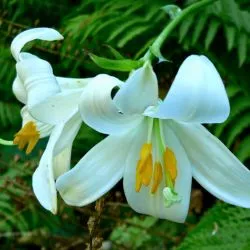
Azaleas/Rhododendron
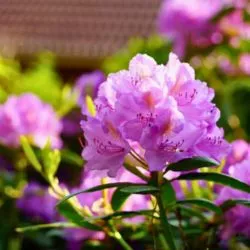
- Species include Rhododendron species.
- Toxicity: High.
- Symptoms: Vomiting, diarrhea, hypersalivation, weakness, coma, hypotension, CNS depression, cardiovascular collapse and death.
Philodendrons
- Species include Heartleaf philodendron, fiddle-leaf fig, etc.
- Toxicity: Moderate to severe.
- Symptoms: Irritation of mouth, lips, and tongue, excessive drooling, vomiting, difficulty in swallowing
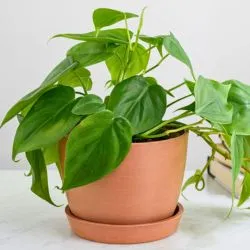
Dieffenbachia/Dumb Cane
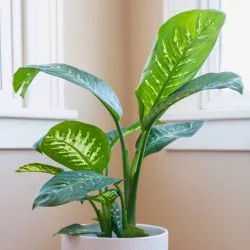
- Species include Dieffenbachia species.
- Toxicity: Moderate to severe.
- Symptoms: Oral irritation, intense burning and irritation of mouth, tongue and lips, excessive drooling, vomiting, difficulty in swallowing
Oleander
- Species include Nerium oleander.
- Toxicity: Severe.
- Symptoms: Hypothermia, diarrhea (possibly bloody), vomiting, incoordination, decreased heart rate, and possible death.
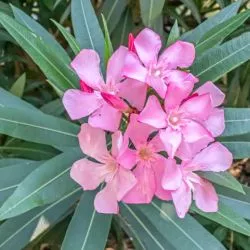
Poinsettia
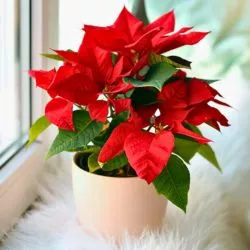
- Species include: Euphorbia pulcherrima
- Toxicity: Low to moderate.
- Symptoms: Irritation of the mouth and stomach, sometimes resulting in vomiting.
Mistletoe
- Species include American mistletoe, European mistletoe.
- Toxicity: Moderate.
- Symptoms: Gastrointestinal disorders, cardiovascular disease, difficulty breathing, slowed heart rate, and can potentially be life-threatening.

This is not an exhaustive list; many more plants can harm cats. Always consult your vet and beware of the plants you bring into your home or grow in your yard.
Other article you may read: How to test your yard for parvo | Can Squirrels Eat Popcorn
Conclusion:
Cat owners need to be vigilant about the plants they introduce into their homes and gardens. Bougainvillea is a beautiful and vibrant plant with no significant evidence of being poisonous to cats. While ingesting the plant’s thorns, leaves, or flowers could lead to mild gastrointestinal discomfort, bougainvillea is not typically classified as toxic to cats.
Nonetheless, it is always wise to prevent your feline friends from chewing on any plants, regardless of their toxicity levels. While bougainvillea might not pose a severe risk, taking precautions will ensure the safety and wellbeing of your beloved pet. By staying informed and creating a safe environment for your cat, you can enjoy the vibrant beauty of bougainvillea without concern for your furry companion’s health.

